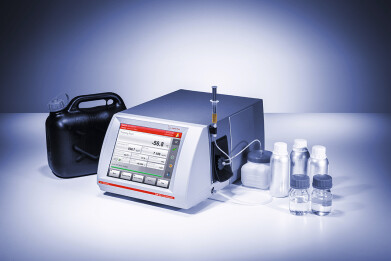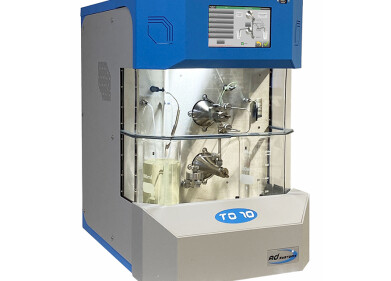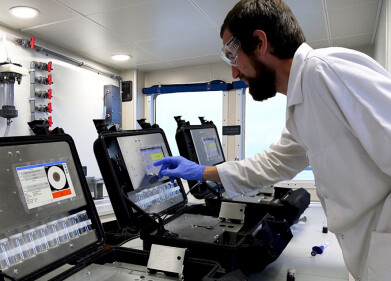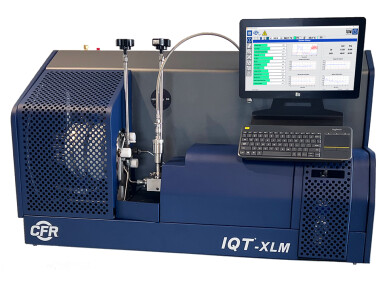Fuel analysis
The Leading Instrument for the Efficient Characterization of Biofuels
Oct 22 2024
The growing emphasis on climate-friendly solutions is increasingly impacting various aspects of daily life, particularly in the transportation sector. Sustainable fuels, including biofuels, play a crucial role in reducing net carbon dioxide emissions and decreasing reliance on fossil fuels.
Biofuel standards and regulations
In both the United States and the European Union, new standards and regulations have been established to define specific requirements and limits for biofuels. For biodiesel, the applicable standards vary depending on the biofuel content: ASTM D6751 and EN 14214 apply to 100 % biodiesel, EN 16709 governs B20 and B30 blends, ASTM D7467 covers blends ranging from B6 to B20, EN 16734 applies to B10, while ASTM D975 and EN 590 are standards for petroleum diesel containing up to 5 % biodiesel in America and 7 % biofuel in Europe. Sustainable aviation fuels on the other hand are governed by standards such as ASTM D1655 and ASTM D7566.
Importance of viscosity and density in biofuel testing
Viscosity and density are critical quality parameters in these specifications, both of which can be easily measured with SVM viscometers. The SVM series complies with ASTM D7042 and ISO 23581 for viscosity testing, as well as D4052 and ISO 12185 for density measurement. This compliance allows for full certification of finished fuels for these parameters, in line with the above-mentioned specifications, across all specified temperatures. The SVM 3001 Cold Properties model even determines additional parameters, such as the cloud point of diesel fuel or the freezing point of aviation turbine fuel.
Anton Paar's SVM viscometer models
Anton Paar provides a diverse range of SVM models to cater to various testing requirements. The SVM 1X01 series is ideal for quick and straightforward kinematic viscosity or density tests, while the advanced SVM X001 series offers precise measurements across a wide temperature range (-60 °C to +135 °C; down to -20 °C without an external chiller) and a viscosity range from 0.2 mm²/s to 30,000 mm²/s. For even greater convenience, SVM X001 models can be optionally equipped with an autosampler capable of handling up to 71 samples.
Enhanced efficiency and reliability
All SVMs feature a robust metal measuring cell, which eliminates the risk of broken glass capillaries and offers enhanced reliability and longer service life while reducing consumable costs. With a 150 % increase in throughput compared to manual methods and a minimal sample and solvent requirement of only 1.5 mL per test, the SVM greatly boosts laboratory efficiency. Its intuitive touchscreen interface simplifies operation, eliminating the need for external PCs for sample management or data storage.
State-of-the-art testing
For laboratories focused on accurate and efficient biofuel testing, Anton Paar’s SVM viscometer series offers an optimal solution. With precise measurement capabilities, robust design, and compliance with key industry standards, the SVM series simplifies biofuel certification and boosts lab efficiency. Upgrade to Anton Paar’s SVM viscometers to ensure reliable results and stay at the forefront of biofuel testing technology.
More information online
Digital Edition
PIN 25.6 Buyers' Guide
January 2025
Buyers' Guide Directory - Product Listings by Category - Suppliers Listings (A-Z) Articles Analytical Instrumentation - ASTM D7042: The Quantum Leap in Viscosity Testing Technology -...
View all digital editions
Events
Jan 20 2025 San Diego, CA, USA
Jan 22 2025 Tokyo, Japan
Jan 25 2025 San Diego, CA, USA
SPE Hydraulic Fracturing Technology Conference and Exhibition
Feb 04 2025 The Woodlands, TX, USA
Feb 05 2025 Guangzhou, China



















